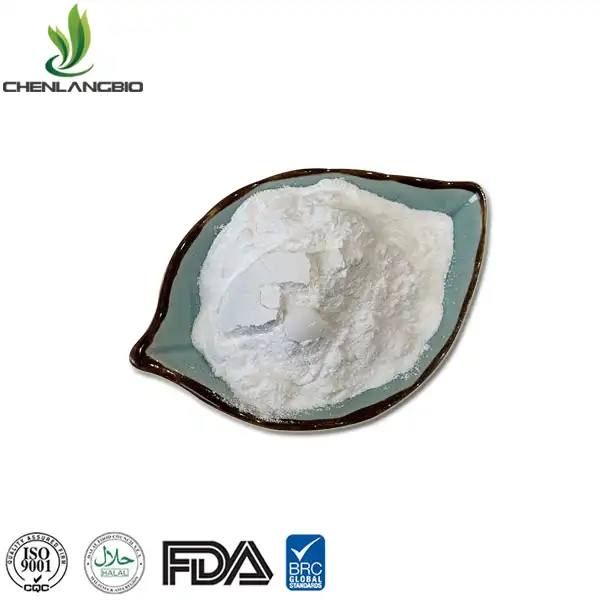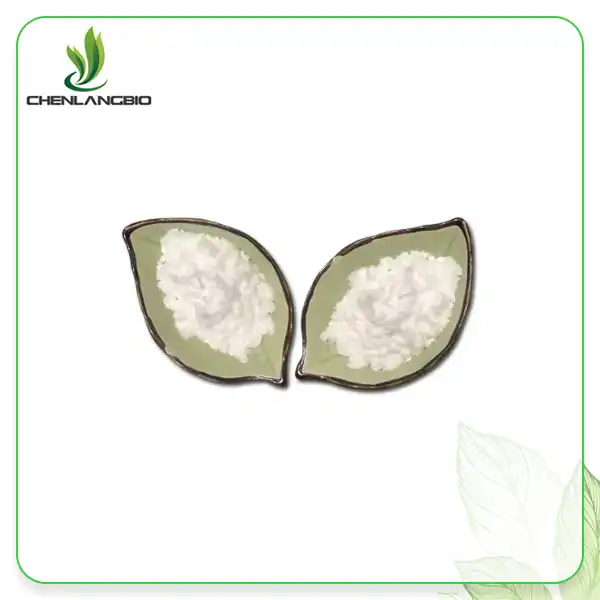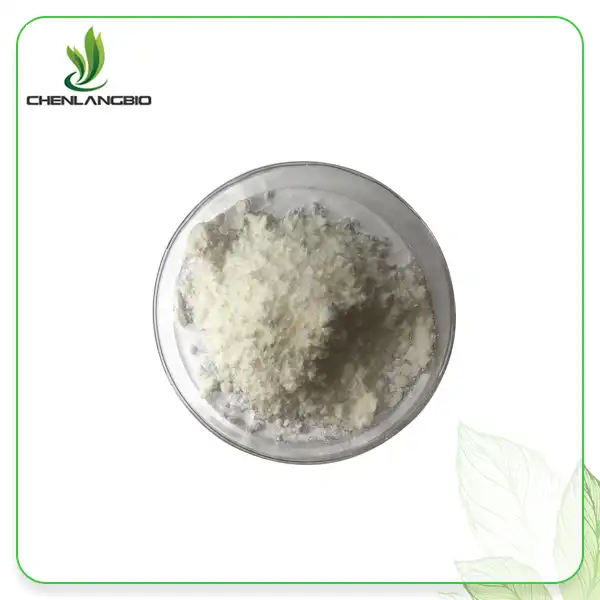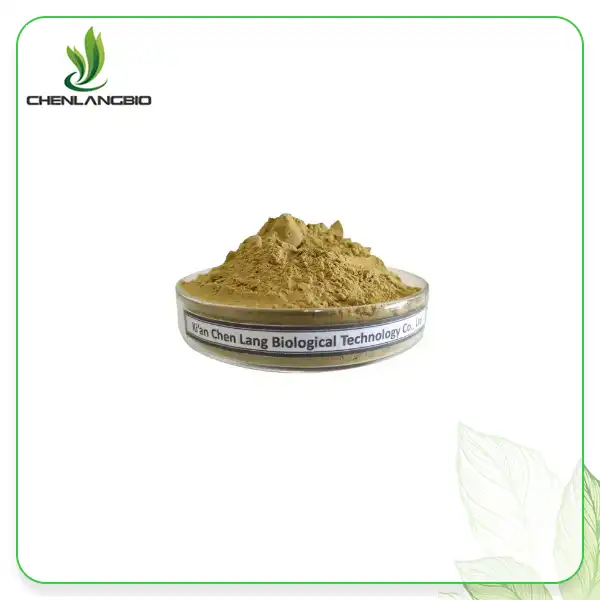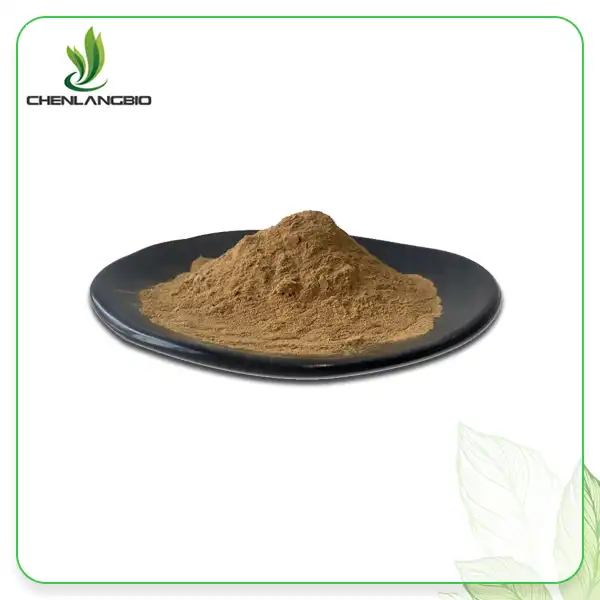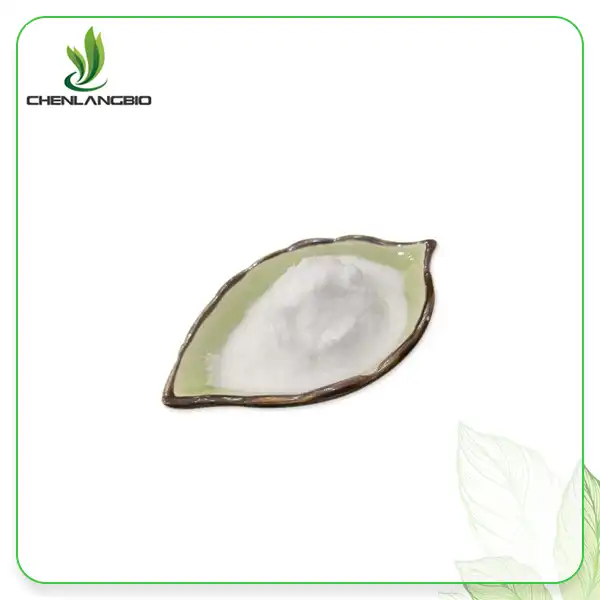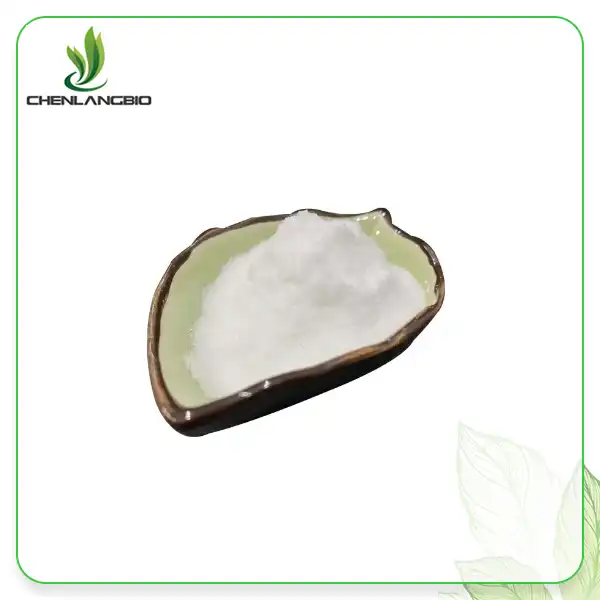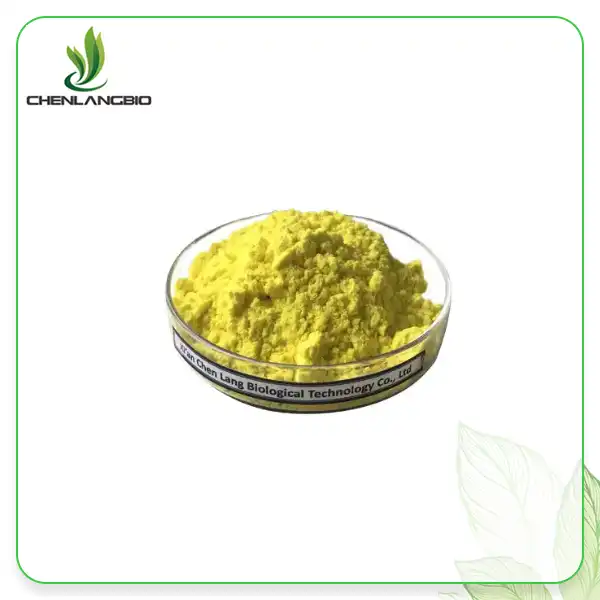What Role Does Vitamin D3 Powder Play in Enhancing Functional Foods and Drinks?
2025-07-22 10:48:22
The modern food and beverage industry has witnessed a remarkable transformation toward functional nutrition, with consumers increasingly seeking products that offer health benefits beyond basic nutrition. At the forefront of this revolution stands Vitamin D3 Powder, a crucial nutrient that has become indispensable in developing enhanced functional foods and beverages. As cholecalciferol, vitamin D3 Powder serves as a cornerstone ingredient that bridges the gap between conventional food products and therapeutic nutrition. The integration of this fat-soluble vitamin into various food matrices has opened unprecedented opportunities for manufacturers to create products that address widespread vitamin D deficiency while meeting consumer demands for convenient, health-promoting options. Understanding the multifaceted role of Vitamin D3 Powder in functional food enhancement reveals its significance in modern nutritional science and commercial food development.
The Nutritional Foundation of Vitamin D3 in Functional Food Development
Understanding Vitamin D3 Bioavailability in Food Systems
Vitamin D3 Powder demonstrates exceptional versatility when incorporated into functional food matrices, primarily due to its unique molecular structure and fat-soluble properties. The cholecalciferol molecule, with its molecular formula C27H44O and molecular weight of 384.64, exhibits remarkable stability in neutral and alkaline solutions while maintaining resistance to high temperatures and oxidation. This inherent stability makes Vitamin D3 Powder an ideal candidate for various food processing techniques, including spray drying, microwave processing, and thermal treatments commonly used in functional food manufacturing. The bioavailability of Vitamin D3 in food systems significantly depends on the presence of dietary fats, which facilitate its absorption through the intestinal wall. When properly formulated, Vitamin D3 Powder can achieve optimal bioavailability rates, ensuring that consumers receive maximum nutritional benefits from fortified products. The encapsulation technologies employed in modern food processing further enhance the stability and bioavailability of Vitamin D3, making it possible to incorporate therapeutic doses into everyday food items without compromising taste, texture, or shelf life.
Synergistic Effects with Calcium and Phosphorus Metabolism
The incorporation of Vitamin D3 Powder into functional foods creates powerful synergistic effects, particularly in calcium and phosphorus metabolism enhancement. Vitamin D3 functions as a hormone precursor that regulates calcium homeostasis by increasing intestinal calcium absorption efficiency from approximately 10-15% to 30-40%. This dramatic improvement in calcium utilization makes Vitamin D3-fortified functional foods particularly valuable for bone health applications. The mechanism involves the conversion of cholecalciferol to its active form, calcitriol, which binds to vitamin D receptors in intestinal cells, promoting the synthesis of calcium-binding proteins. Furthermore, vitamin D3 Powder enhances phosphorus absorption through intestinal walls and increases phosphorus reabsorption through renal tubules, creating a comprehensive mineral metabolism support system. This dual action on calcium and phosphorus metabolism positions Vitamin D3-enhanced functional foods as superior alternatives to traditional calcium supplements, offering more complete nutritional support. The synergistic relationship between Vitamin D3 and these essential minerals makes it possible to develop functional foods that address multiple nutritional deficiencies simultaneously, providing consumers with more comprehensive health benefits through convenient food formats.
Molecular Stability and Processing Compatibility
The molecular characteristics of Vitamin D3 Powder make it exceptionally compatible with various food processing methods commonly used in functional food production. Unlike water-soluble vitamins that may degrade during processing, Vitamin D3's fat-soluble nature provides inherent protection against thermal degradation when properly formulated with appropriate lipid carriers. Advanced processing technologies, including dynamic countercurrent extraction and membrane separation techniques, can be employed to incorporate Vitamin D3 Powder into functional food matrices while maintaining its biological activity. The stability of cholecalciferol in alkaline conditions makes it suitable for incorporation into protein-enriched functional foods and beverages that may have higher pH levels. Quality control measures, including high-performance liquid chromatography with evaporative light scattering detection (HPLC-ELSD), ensure that Vitamin D3 content remains consistent throughout the manufacturing process. The ability to maintain potency during spray drying processes makes Vitamin D3 Powder particularly valuable for instant functional food products, such as protein powders, meal replacement shakes, and instant nutritional beverages. This processing compatibility, combined with rigorous quality control standards including ISO 9001-2015 certification, ensures that Vitamin D3-enhanced functional foods maintain their therapeutic value from production through consumption.
Strategic Applications in Beverage Fortification
Dairy and Plant-Based Milk Enhancement
The fortification of dairy and plant-based milk products with Vitamin D3 Powder represents one of the most successful applications in functional beverage development. Traditional dairy milk naturally contains minimal amounts of vitamin D, making fortification essential for meeting daily nutritional requirements. Vitamin D3 Powder integrates seamlessly into milk processing systems, utilizing the natural fat content to enhance absorption and stability. The homogenization process effectively distributes cholecalciferol throughout the milk matrix, ensuring consistent potency in every serving. Plant-based milk alternatives, including almond, oat, and soy varieties, benefit significantly from Vitamin D3 fortification, as these products typically lack the vitamin entirely in their natural state. The addition of Vitamin D3 Powder to plant-based beverages requires careful consideration of lipid carriers to ensure optimal bioavailability, often achieved through the incorporation of natural oils or emulsification agents. Advanced processing techniques, including microencapsulation, protect the Vitamin D3 from light exposure and oxidation during storage, maintaining product stability for extended shelf life periods. Quality control protocols ensure that fortified milk products deliver consistent vitamin D3 levels, typically ranging from 100-144 IU per 8-ounce serving, meeting regulatory standards while providing meaningful nutritional benefits to consumers seeking convenient vitamin D supplementation through familiar beverage formats.
Sports and Energy Drink Applications
The integration of vitamin D3 Powder into sports and energy drinks addresses the critical nutritional needs of active individuals who may have increased vitamin D requirements due to intense physical activity and limited sun exposure. Athletic performance and recovery depend significantly on optimal vitamin D status, as it influences muscle function, bone health, and immune system performance. Vitamin D3-fortified sports drinks provide a dual benefit of hydration and essential nutrient delivery, making them particularly valuable for athletes training in indoor facilities or during winter months when natural vitamin D synthesis is limited. The formulation of these beverages requires careful balance to ensure that Vitamin D3 Powder remains stable in the presence of electrolytes, natural flavors, and other functional ingredients commonly found in sports nutrition products. Advanced encapsulation technologies protect cholecalciferol from degradation while allowing for clear, appealing beverage formulations that meet consumer expectations for taste and appearance. The bioavailability of Vitamin D3 in sports drinks can be enhanced through the inclusion of medium-chain triglycerides or other lipid sources that facilitate absorption without compromising the refreshing nature of the beverage. Research indicates that regular consumption of Vitamin D3-fortified sports drinks can help maintain optimal vitamin D status in athletes, potentially improving performance outcomes and reducing injury risk associated with vitamin D deficiency.
Functional Juice and Smoothie Innovation
The incorporation of Vitamin D3 Powder into juice and smoothie products represents a significant advancement in functional beverage innovation, addressing consumer preferences for natural, health-promoting drinks. Fruit juices naturally lack vitamin D, making fortification an essential strategy for enhancing their nutritional profile without altering taste characteristics. The acidic environment of many fruit juices requires specialized formulation approaches to maintain Vitamin D3 stability, often involving pH adjustment or the use of protective encapsulation systems. Smoothie applications present unique opportunities for Vitamin D3 incorporation, as the presence of natural fats from ingredients like avocado, nuts, or yogurt enhances absorption while providing ideal conditions for cholecalciferol stability. The development of Vitamin D3-fortified green juices and vegetable smoothies addresses the nutritional needs of health-conscious consumers who may have limited sun exposure due to lifestyle factors or geographic location. Processing techniques must carefully balance the preservation of heat-sensitive nutrients from fruits and vegetables while ensuring Vitamin D3 stability, often requiring cold-processing methods or minimal heat treatments. Quality assurance protocols, including regular testing using ultraviolet-visible spectrophotometry, ensure that finished products deliver consistent Vitamin D3 content throughout their shelf life. The growing popularity of functional juice cleanses and meal replacement smoothies creates expanding market opportunities for Vitamin D3-enhanced products that provide comprehensive nutritional support in convenient, consumer-friendly formats.
Manufacturing Excellence and Quality Assurance
Advanced Production Technologies and Standards
The production of high-quality Vitamin D3 Powder for functional food applications requires sophisticated manufacturing processes that ensure consistent potency, purity, and stability. State-of-the-art production facilities utilize multiple plant extraction production lines equipped with dynamic countercurrent extraction systems, column separation technology, and membrane separation capabilities to achieve optimal yield and quality. The manufacturing process begins with careful raw material selection, focusing on cholesterol sources that meet stringent quality standards for pharmaceutical and food-grade applications. Advanced spray drying technology plays a crucial role in converting liquid Vitamin D3 concentrates into stable powder forms while preserving biological activity and ensuring uniform particle size distribution. The production environment maintains strict temperature and humidity controls to prevent degradation of cholecalciferol during processing and packaging operations. Quality control laboratories equipped with high-performance liquid chromatography-evaporative light scattering detectors (HPLC-ELSD) and atomic fluorescence spectrometers conduct comprehensive testing at multiple stages of production to verify potency, purity, and absence of contaminants. The implementation of Good Manufacturing Practices (GMP) and ISO 9001-2015 certification ensures that all production activities meet international quality standards, providing customers with reliable, consistent Vitamin D3 Powder suitable for functional food applications.
Comprehensive Quality Control and Testing Protocols
The quality assurance framework for vitamin D3 Powder production encompasses multiple analytical techniques and testing protocols designed to ensure product excellence and regulatory compliance. Comprehensive testing begins with incoming raw material verification, utilizing various analytical methods to confirm identity, potency, and purity of cholesterol precursors and other components. Throughout the production process, in-process controls monitor critical parameters including temperature, pH, moisture content, and particle size distribution to ensure optimal processing conditions. Finished product testing employs sophisticated analytical instruments, including ultraviolet-visible spectrophotometry for potency determination and microbial detection equipment to verify absence of pathogenic organisms. Heavy metal analysis using atomic fluorescence spectrometry ensures that Vitamin D3 Powder meets strict safety standards for food applications, while rapid moisture analyzers confirm appropriate water activity levels for long-term stability. The quality control system maintains detailed documentation and traceability records for each production batch, enabling rapid response to any quality issues and supporting regulatory compliance requirements. Regular method validation and equipment calibration ensure the accuracy and reliability of all analytical results, while proficiency testing with external laboratories provides additional confidence in testing capabilities. This comprehensive approach to quality control, combined with annual production capacity of 600 tons and extensive inventory management maintaining 300-500 kilograms of each product, ensures consistent supply of high-quality Vitamin D3 Powder for functional food manufacturers worldwide.
Regulatory Compliance and Certification Standards
The production and distribution of Vitamin D3 Powder for functional food applications requires adherence to stringent regulatory standards and certification requirements across multiple jurisdictions. Manufacturing facilities maintain comprehensive certification portfolios including ISO 9001-2015 for quality management systems, ISO 22000 for food safety management, and specialized certifications such as HALAL and Kosher to serve diverse market segments. These certifications require regular audits and continuous improvement processes that ensure ongoing compliance with evolving regulatory requirements. The company's quality management system addresses all aspects of Vitamin D3 Powder production, from raw material sourcing through final product distribution, with particular emphasis on traceability and documentation requirements. Regulatory compliance extends to product labeling and technical documentation, ensuring that all claims regarding Vitamin D3 content and health benefits are substantiated by appropriate scientific evidence and meet regional regulatory standards. The establishment of robust supplier qualification programs ensures that all raw materials and packaging components meet applicable regulatory requirements, while comprehensive change control procedures manage any modifications to formulations, processes, or suppliers. Regular training programs for production and quality assurance personnel maintain current knowledge of regulatory requirements and industry best practices, supporting consistent compliance across all operations. This commitment to regulatory excellence, combined with established trade relationships in more than 30 countries and 80 regions worldwide, positions the company as a reliable supplier of compliant Vitamin D3 Powder for functional food applications in global markets.
Conclusion
Vitamin D3 Powder stands as a transformative ingredient in the functional foods and beverages industry, offering manufacturers unprecedented opportunities to address widespread nutritional deficiencies while meeting consumer demands for health-enhancing products. Through its exceptional stability, bioavailability, and compatibility with various food processing technologies, cholecalciferol enables the development of innovative functional products that deliver meaningful health benefits. The synergistic effects with calcium and phosphorus metabolism, combined with advanced manufacturing capabilities and rigorous quality control standards, position Vitamin D3 Powder as an essential component in next-generation functional nutrition solutions. Ready to enhance your functional food and beverage products with premium Vitamin D3 Powder? Partner with CHENLANGBIO, your trusted manufacturer with over 35 years of excellence in amino acids and vitamin production. Our GMP-certified facilities, comprehensive certifications including ISO 9001-2015, HALAL, and Kosher, and annual production capacity of 600 tons ensure reliable supply and consistent quality. With immediate stock availability of 1,300 kg and rapid shipping within 2-3 working days, we're ready to support your product development needs. Contact our expert team today at admin@chenlangbio.com to discuss your Vitamin D3 Powder requirements and discover how our innovative solutions can elevate your functional food products to new heights of nutritional excellence.
References
1. Holick, M.F. (2017). The vitamin D deficiency pandemic: Approaches for diagnosis, treatment, and prevention. Reviews in Endocrine and Metabolic Disorders, 18(2), 153-165.
2. Cashman, K.D., & Kiely, M. (2016). Tackling inadequate vitamin D intakes within the population: fortification of dairy products with vitamin D may not be enough. Endocrine, 51(1), 38-46.
3. Tripkovic, L., Lambert, H., Hart, K., Smith, C.P., Bucca, G., Penson, S., ... & Lanham-New, S. (2012). Comparison of vitamin D2 and vitamin D3 supplementation in raising serum 25-hydroxyvitamin D status: a systematic review and meta-analysis. American Journal of Clinical Nutrition, 95(6), 1357-1364.
4. Zhao, L.J., Zhou, Y., Bu, F., Travers-Gustafson, D., Ye, A., Xu, X., ... & Deng, H.W. (2012). Factors predicting vitamin D response variation in non-Hispanic white postmenopausal women. Journal of Clinical Endocrinology and Metabolism, 97(8), 2699-2705.
Send Inquiry
Related Industry Knowledge
- How Does Diosmin Powder Reduce Venous Hyperpressure Effectively?
- What are the Benefits of Sodium Ascorbyl Phosphate for the Skin?
- What are the Excitation and Emission Properties of D-Luciferin Sodium Salt?
- What Is Meglumine Powder and How Does It Work?
- Sodium Methylesculetin Acetate: Uses, Benefits & Safety
- Can Humans Take Praziquantel for Tapeworm
- What is the Benefit of Sophoricoside
- What's Different Between Honokiol Powder and Magnolol
- What Is Cordyceps Sinensis Powder Used For
- How Long Does Red Yeast Rice Extract Powder Take to Lower Cholesterol


